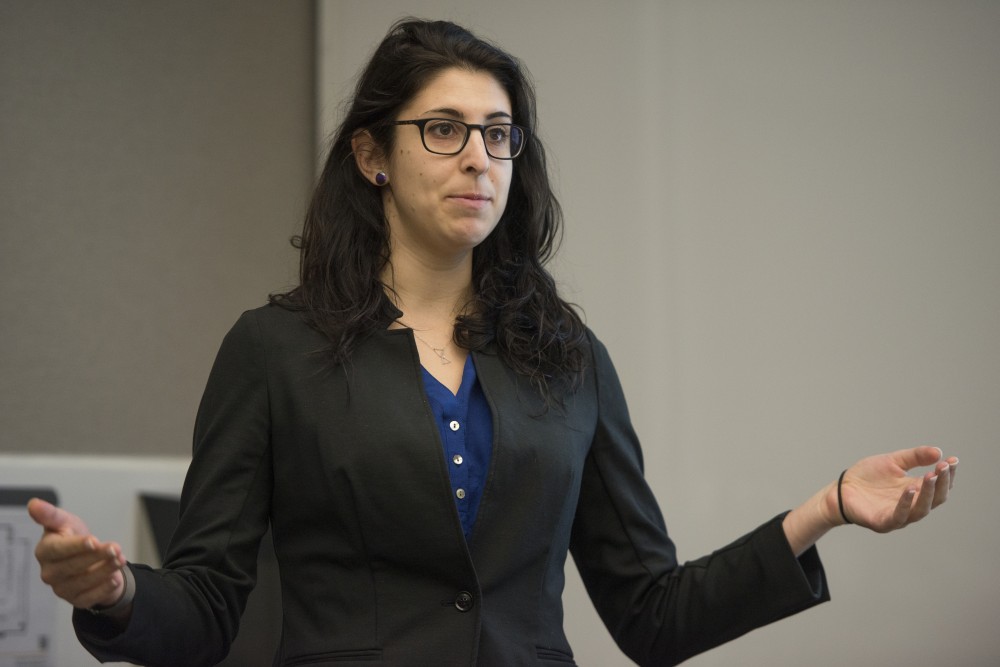After presenting to international government groups around the world, a research organization brought its findings on juvenile detention to the University of Minnesota Law School Wednesday afternoon.
Juvenile Justice Advocates International, in partnership with groups around the country including the University’s Human Rights Center and University students, studied the amount of time juveniles spend in detention centers while awaiting trial in 118 countries around the world and the effects it can have on them.
“The report really started from our work in Mexico,” said Douglas Keillor, founder and executive director of JJAI. “And one of the issues that we work on is trying to ensure that children who are detained get a court hearing and a trial as quickly as possible.”
Children in detention centers awaiting trial can face prison overcrowding, disease outbreaks and may lead to them dropping out of school. Pretrial detention also has the highest rate of abuse in the justice system, said Keillor.
The issue of juvenile detention center wait times could go unresolved if governments and other groups don’t take action, said Rebecca Rosefelt, a third-year student at the law school who spent the summer of 2017 with JJAI interviewing detained children in Mexico.
“The issue’s going to just stagnate until it’s recognized as a necessary area of research by civil society groups,” she said.
In the 118 countries surveyed, the average maximum amount of time juveniles spend in detention centers before trial is 121 days, according to the report.
The organization presented its findings to the United Nations Committee on the Rights of the Child, U.N. Committee Against Torture and World Congress on Justice for Children in May. JJAI made recommendations to the U.N. to set a maximum detention period of 30 days for juveniles along with limited extensions, 91 days less than the average maximum time observed in the report.
The United States has maximum detention periods for juveniles and does not limit extensions.
The research showed that developed countries don’t necessarily have shorter detention time limits for juveniles than developing countries. Sweden and Canada, for example, have no cap on their pretrial wait times, according to Wednesday’s presentation.
Much of Keillor’s work is based in Mexico, where around 13,000 children are currently held in detention centers, according to JJAI.
In 2016, Mexico passed a juvenile justice law that limited the detention period to five months, which Keillor calls an improvement. But a stronger recommendation for limits by the U.N. could have encouraged the Mexican government to adopt even stronger protections, Keillor said.
U.N. recommendations could also allow other organizations, such as UNICEF, to begin integrating them into their work.
“When Mexico was debating this new juvenile justice law, UNICEF had a huge voice, and so they were making recommendations,” Keillor said. “But there were no recommendations from UNICEF around time limits.”
The human rights aspects of JJAI appeal to second year law student Yuka Shiotani, who attended the Wednesday event. Though it is a small organization, it has a big impact, said Shiotani.
Rosefelt agrees that JJAI can create change.
“This report speaks to the power of what a small organization can do,” Rosefelt said. “And people who want to make a big difference do not need to do so by joining something like a really, really large organization.”























